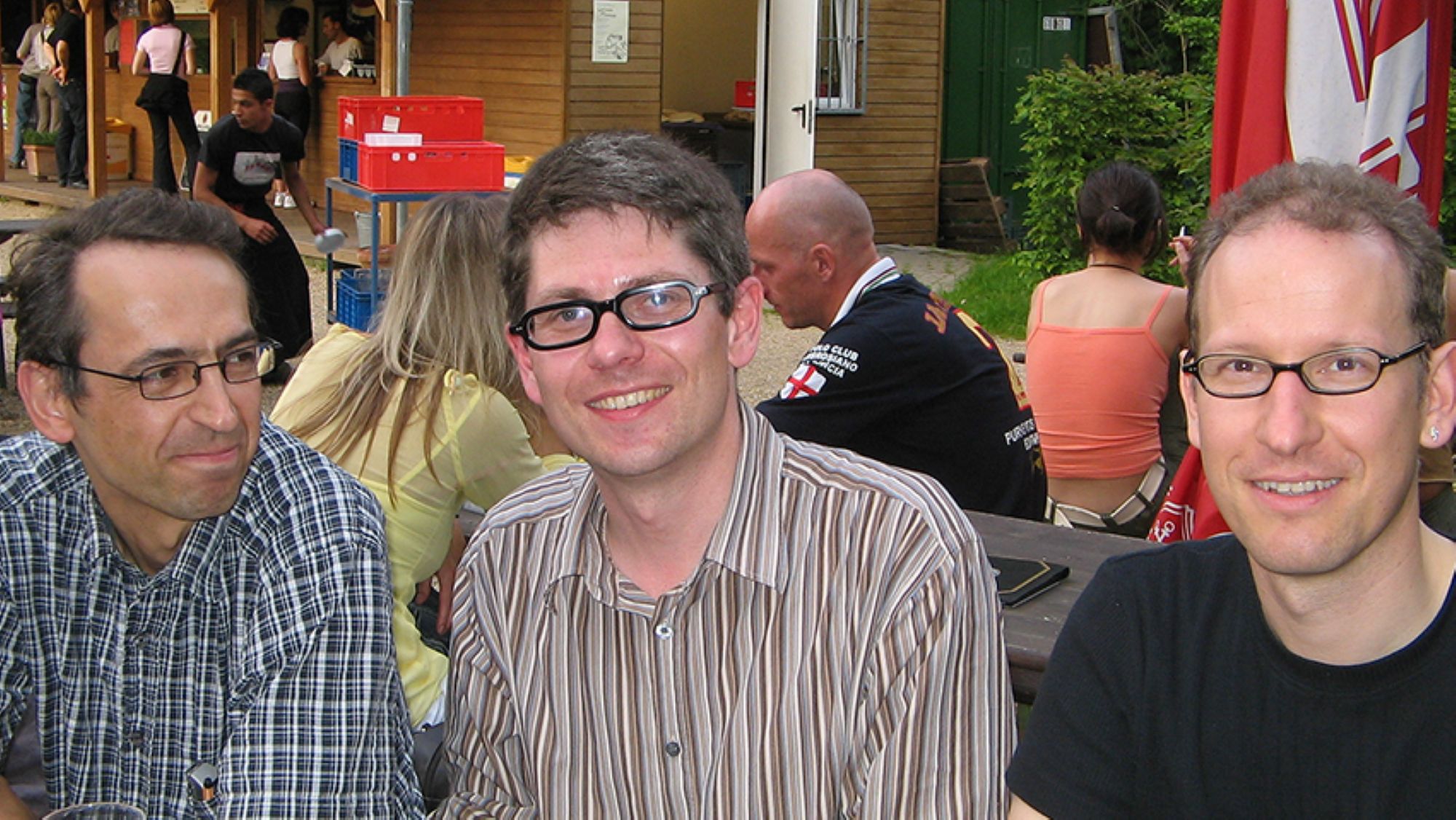
© Davide Angelini / Adobe Stock
Happy Birthday, ZeMKI!
The Centre for Media, Communication and Information Research is celebrating its twentieth birthday
Whether you’re scrolling through social media, booking your next vacation, or researching for a paper: Media and communication shape every aspect of our daily lives. But how exactly? At the Centre for Media, Communication and Information Research (ZeMKI), researchers from various fields such as media studies, education, and computer science dive into the multifaceted ways media, communication, and society interact. And they’ve been doing this groundbreaking work for twenty years.
With its eleven professors, 58 academic staff members, three fellows, and 18 advisory members, the ZeMKI is one of the Central Research Units at the University of Bremen. This means it is independent of the individual faculties, an ideal structure for the interdisciplinary research collaborations that take place there. The shared building on Linzer Straße, where most of the researchers have worked together since 2011, stands as a testament to this unity.
There are ten labs at ZeMKI; each is a working group and is led by a professor. How wide-ranging research at ZeMKI is, can be highlighted by just looking at two examples. Kerstin Radde-Antweiler, professor of religious studies and deputy spokesperson of ZeMKI, explores the interplay between media and religion. Her work examines how media shapes the image of religious communities and how they use media to spread their messages. Karsten Wolf, professor of media education and design of multimedia learning environments, investigates topics such as how children and teenagers learn in digital spaces, the different learning experiences video games can offer, and how school learning platforms can be designed to motivate kids and teenagers to engage in learning.
A Spirit of Optimism: How Three Young Professors Laid the Foundation for ZeMKI
ZeMKI’s three main research areas – Automation and Datafication of Communication, AV Cultures, and Digital Gaming – cover an enormous range of topics. This interdisciplinary approach has been a defining feature of the institute since its early days. In the early 2000s, several faculties at the University of Bremen established professorships in the field of digital media. The newly appointed professors quickly realized that they wanted to work together, especially three of them: computer scientist Andreas Breiter; Andreas Hepp, who researched media and communication change; and Winfried Pauleit, a film and media scholar. On May 26, 2005, the assistant professors at the time founded the Institute for Media, Communication and Information (IMKI), which, in 2011, was renamed Centre for Media, Communication and Information Research (ZeMKI), and in 2019, it became one of nine Central Research Units at the University of Bremen. “There was a great spirit of optimism,” says Andreas Hepp. Along with that optimism came a keen sense of which current topics and developments were relevant to society and research.

© ZeMKI / Universität Bremen
“Mediatized Worlds” – Research at the Intersection of Media and Society
“Even back then, our approach was to study media and communication in the context of social developments and understand them as inherently social phenomena,” recalls Hepp. This set IMKI apart from other media research institutes in Germany, which were still focusing on individual types of media, such as television, radio, and print. This overarching research perspective was reflected in the “Mediatized Worlds” Priority Program, the first major research program at IMKI. It was supported by the German Research Foundation (DFG) from 2010 to 2016 and coordinated by Friedrich Krotz. In the program, researchers examined how different areas of society change when they become increasingly permeated by digital media.
International Exchange Through the Visiting Research Fellowship
ZeMKI’s research approach quickly gained international recognition, attracting top scientists from around the globe. To accommodate them, the ZeMKI Visiting Research Fellowship Program was initiated in 2017. The program gives researchers four weeks at ZeMKI to freely work on a selected topic. Apart from being invited to contribute a lecture and a working paper, they are free to organize their time as they wish to conduct research with ZeMKI staff. “This is quite a luxury, considering how busy researchers’ schedules are,” says Dr. Leif Kramp, research coordinator at ZeMKI. Its popularity is quantifiable: This year, 166 people applied for five places.
But researchers are not the only ones who benefit from ZeMKI’s academic excellence. Degree programs such as the Bachelor of Arts in Media and Communication Studies and the Master of Arts programs in Digital Media and Society and, since 2024, Media and Public Engagement, are among the most popular ones at the University of Bremen. The community also benefits from a public lecture series on communicative AI, which has been running for a year and a half, as well as the ZeMKI media talks. These talks are currently being organized in collaboration with Radio Bremen/Bremen Zwei and the Bremen Press Club. These events provide a platform for media professionals, community members, and researchers to exchange ideas on relevant topics such as artificial intelligence in journalism and the dissemination of information via social media.
Fundamental Research on Contemporary Issues
And what does the future hold? One of the things is a new research group on communicative artificial intelligence, “Communicative AI: The Automation of Societal Communication,” ComAI for short, which has been funded by the German Research Foundation (DFG) and the Austrian Science Fund (FWF) since the beginning of the year. The research group will continue its work with the aim of studying communication between artificial intelligence and humans, including voice assistants, social bots that influence public debates, and programs such as ChatGPT. “When we started looking into this topic, people used to make fun of us. ‘Are you doing something on Alexa now?’” says Hepp. Now, everyone is talking about it. This once again highlights a hallmark that has characterized ZeMKI throughout its history: “We are going to continue combining fundamental research with a keen focus on contemporary issues,” summarizes Hepp.